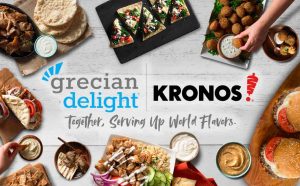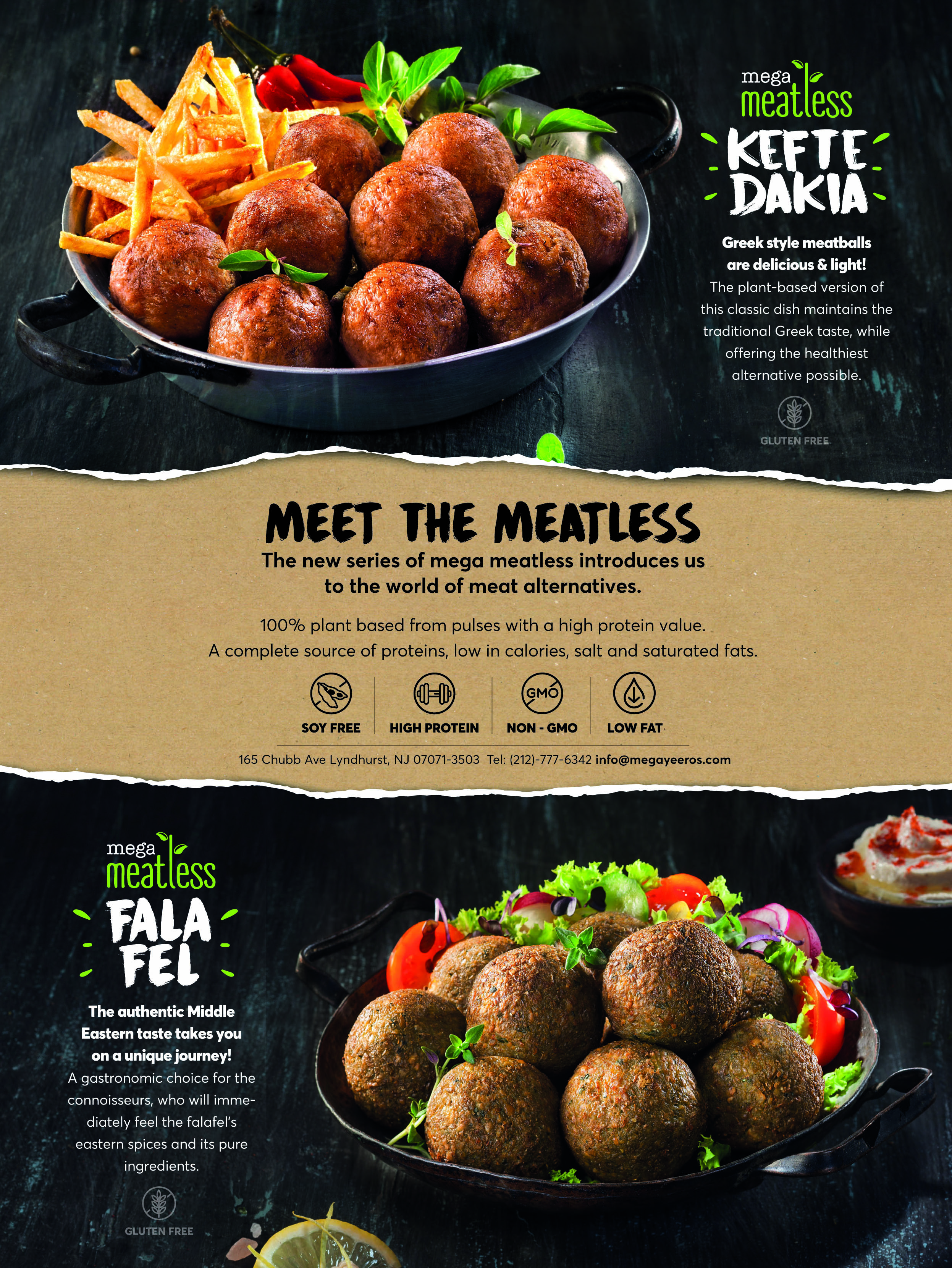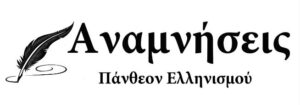Tales of Gyro and Pita
Posted by estiator at 10 March, at 10 : 57 AM Print
ONCE UPON A TIME IN CHICAGO…
Olympia Foods
FOOD has always been a huge part of America’s lore and its culture. As the “melting pot” of the world (or is “mosaic” the more widely-accepted metaphor today?), the foods that Americans eat have always been influenced by the people that have come to the country and made it great. There are museums dedicated to hot dogs; hamburgers have been consecrated to the point that they can be defined as the host in America’s temple to democracy; and pizza and tacos have become as American as Mama Rosa and Abuelita Guadalupe’s apple pies. Food is sacred stuff, and the culinary zeitgeist is now firmly affixed to the foods that the nation’s Greek immigrants have brought to the restaurant table.
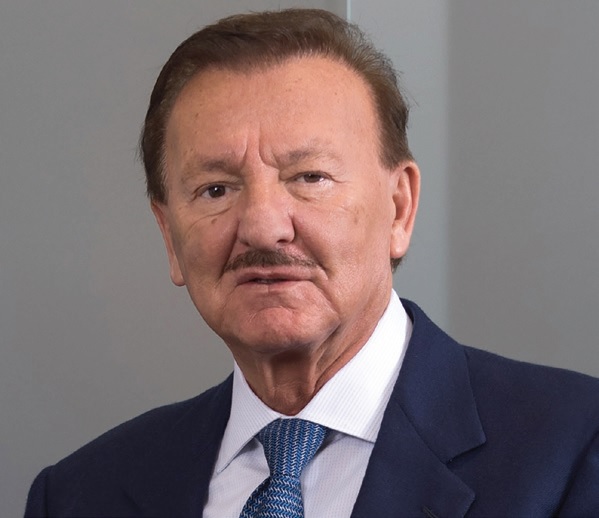
Andreas Papantoniou, President, Olympia Foods
Enter the gyros
Although it may have taken them decades to learn to pronounce it, Americans are in the throes of a love affair with rotisserie meat served on pita bread with slatherings of creamy tzatziki; a culinary treat that has long been a street food staple in Greece. That love affair began in earnest in Chicago in the early 1970s and, through Greek festivals that pepper the landscape from coast-to-coast, has become a national infatuation.
With Greek eateries in all segments opening on what seems to be a daily basis, it appears that gyros is destined for a place in America’s food lore beside the hot dog, hamburger, pizza and taco.
With our recent visit to Chicago, Estiator takes this opportunity to look at the genesis of the gyro revolution and at the companies that created the market by supplying restaurants, festivals, and home cooks with the goods to sell, serve and eat this delicious product.
Olympia Foods began as a Sheridan Road restaurant that Andreasas Papantoniou and his late-brother Kostas opened in 1971. Andreas, who had arrived to the U.S. from Arcadia, Greece six years prior, was 24 years old at the time. His brother Kostas, who came that year, was 23. But where most young Greek immigrants working in the restaurant industry stayed in the industry for decades, making their fortunes, these two brothers stayed a very short time. Indeed, a year after opening The Acropolis, the brothers established the first iteration of Olympia Foods, making pita at first and a short while later making gyros, which now constitute about half Olympia’s roughly $60 million in sales. Today, Andreas and Kostas’s children have stepped into leadership roles, helping to take the company, which has remained a family-owned business, into the next stages.
Andreasas: My brother and I started in 1971, producing gyros and pita breads for our own restaurant. As gyro shops opened, we started selling pita to friends with restaurants. Some others wanted to buy from us, but we didn’t have the capacity to do much more. Before we knew it, we found ourselves in the pita business – and so we decided to sell the restaurant to focus on pita bread. By 1974, the brothers went from making hand-produced pita breads to designing and operating the world’s first automated pita/flatbread line; for which they hold patents issued by the U.S. Patent Office. As the product penetrated the market, demand grew rapidly and soon the line was running 24 hours/day, six days/week.
AP: In addition to supplying restaurants, we produced private label flatbreads for Pepperidge Farms and sold our products retail at Kroger. Through experience, we learned how to mass produce pita breads and still retain the hand-made effect. At around the same time, Andreas and Kostas began making gyros commercially.
AP: Gyros is not an easy product to make. You are dealing with ground meet, spices, aromatics; you need to have a recipe that has a specific bite characteristic and slicing yield…
Every once in a while, the assertion is made that gyros was actually invented in Chicago. Is this factual?
AP: Gyro is not a Greek American invention, as some people think. In Greece, however, ground meat gyro was made by individuals and there were food safety issues. The government put regulations on it. Here in the U.S. we are under USDA supervision, which guarantees the quality of the product and the food safety of our processes.
It’s amazing that with Greeks dispersed throughout the country, gyro production has, for the most part, been centralized here in Chicago. Do you attribute this to any particular phenomenon?
AP: The know-how with regard to making gyro was developed here in Chicago. And, of course, the city’s central location makes it best-suited for nationwide distribution.
Grecian Delight

Pete Parthenis Sr., Founder & Chairman of the Board, Grecian Delight Foods
With its recent multi-million dollar investments in innovation and technology, Grecian Delight is aiming to make gyros more easily accessible to restaurants and national chain menus around the world.
“This innovation will ultimately increase the overall market size of the gyros sandwich and increase overall consumption,” says company founder and Chairman Peter Parthenis, Sr.
Peter Parthenis Jr., the president and CEO of the company adds,
“This new product line, which we call Ready Carved, delivers to the industry the most authentic ethnic meat products that are flame broiled and robotically sliced to perfection right off the cone. This product line really adds value to the restaurateur by improving their profitability; reducing labor costs; increasing quality, consistency and food safety; eliminating the investment in a vertical broiler; and saving restaurants space in their kitchens.” This product line, he says, delivers the bold and authentic flavors of the most popular ethnic street foods in Europe and the Middle East; products that are “on trend” and available in traditional gyros, chicken gyros, shawarma, doner and taco al pastor.
Parthenis Sr. got his start in the industry as a graduate student while working as a robotics engineer for the Harshaw Chemical Company.

Peter Parthenis Jr., President & CEO, Grecian Delight
“Many of the Greek restaurants on Halsted and Lawrence Streets would ask for parts for the gyro machines that they had bought from Greece, as they would break down all the time,” says the Grecian Delight founder. “In the meantime, I would go to the restaurants and eat and I would hear from the waiters that almost all customers would order gyro as either a main course or an appetizer. And so I started a company that we called Optimal Automatics that made rotisseries and I started selling them to the restaurants. I also gave some of the restaurants a recipe for how to make the gyro meat themselves. After a year or so, the restaurants were having a difficult time producing the product consistently. I knew that the concept wouldn’t go further unless they could buy the gyros meat ready – preparing a gyros cone requires a lot of art, handwork and labor.” With opportunity looking him in the eye, Parthenis went to two or three meat companies and showed them how to make gyro, intending to sell the machines. “Thank God they turned me down,” he says. “This forced me to make the meat. I learned that the money was in the meat, not in the machines… The meat was consumable and there was always a need to produce more, where the machines would last fifteen years.”
Parthenis Jr. says that in 1971 or 1972 his father formed the company Gyros Incorporated, which was later changed to Grecian Delight. “Years later he decided to make all of the ingredients… pita bread, meat, tzatziki sauce. Today we produce 900,000 pitas every 24 hours and thousands of gallons of tzatziki on a daily basis and we export some of these products to Middle East, Latin America and Asian countries. In the meantime, about ten years later, we realized that Greek food was growing beyond gyros, and we began to produce moussaka, tyropitas, kebabs, etc.”
Kronos

Howard Eirenberg , President & CEO, Kronos
Founded in 1975 by Christos Tomaras, an ambitous Greek immigrant who started in restaurants before getting into the rotisserie equipment business and, finally, manufacturing gyros, Kronos, today, is owned by Grey Mountain Partners, a Boulder, Colorado-based private equity firm.
Led by President/CEO Howard Eirinberg since 2011, the company’s offerings include a line of pita breads, tzatziki, hummus, desserts and more.
Tomaras, who passed away in 2015 from esophageal cancer, came to Chicago in 1962 after a run of bad luck with unscrupulous business partners. In Chicago, he jumped at the opportunity to purchase a sports bar across from the city’s famed Wrigley Field, where he found success. While running the sports bar, he was tinkering with a contraption that would create a new path for him. His “Kronomatic” vertical spit rotisserie invention earned him a patent, and allowed him to provide his fellow restaurateurs with an efficient way to prepare a quality gyro product in high volumes with consistency.
But he soon came to the conclusion that the future of gyros was not in the machines, but in the meat itself. And so he took adult education classes in sausage making and worked until he had perfected a recipe that would cook properly, stay on the cone through the cooking process, and taste great. In late 1975 he created Kronos and he never looked back. In 1986 he purchased Apostolou’s Central Gyros Wholesale Co.
Tomaras and his wife Nancy ran the company successfully for nearly twenty years and in 1994, he sold Kronos to a private investment firm. On retirement he went on to commit himself to a number of Greek American and Greek Orthodox organizations and causes, including Leadership 100, SAE (Council for Greeks Abroad), and the Order of St. Andreasw. He was the founder of the PanHellenic Scholarship Foundation.
Under Howard Eirinberg, Kronos operates a 210,000 square foot stateof-the-art facility in Glendale Heights, Illinois where gyro, pita and sauces are all manufactured under a single roof.
Devanco
Established in 1993, Devanco Foods bills itself as “Chicago’s Favorite”, capitalizing on the city’s fame as the American home of the gyro, as well as home of Italian beef (a French dip-like sandwich topped with spicy giardiniera), which the company also produces.
Since 2004, the company has been helmed by CEO/President Peter Bartzis, a Greek food manufacturing veteran that has played a significant role in the development of the product over the decades.
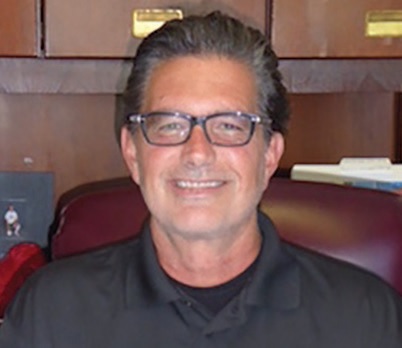
Peter Bartzis, CEO & President, Devanco Foods
According to Devanco, the first gyro served in the United States was by restaurateur George Apostolou at his Parkview Restaurant in Chicago back in 1965. Nine years later, Apostolou began mass-producing gyro cones for local restaurants with the founding of Central Gyros Wholesale.
Peter Makrias: How is it that you got involved in the Greek food products business?
Peter Bartzis: I started as a salesman at Kronos right out of college, then worked my way up to Vice President and, eventually, President of one of the two divisions of the company before leaving in 2001. In 2004, after my non-compete with Kronos expired, I put the team together and bought Devanco.
PM: In addition to producing food, your company is also a distributor for foods manufactured abroad. How many products does Devanco produce itself today compared with how many it produced when you took over?
PB: When we took over, Devanco was primarily 90% distributed items and 10% goods that were manufactured by the company. Today, the inverse is the case: We are 90% manufactured and 10% distributed items, all of which are proprietary to us. We manufacture over one hundred items and just opened a new hummus and falafel facility in St. Charles. We are the only hummus manufacturer that can say we are “Farm-to-Table” and have traceability back to the farm on the beans.
PM: What are Devanco’s primary products, and how are they distributed?
PB: We have two or three main products. Gyros and Italian beef are still our largest two categories. All of our items are distributed nationally. We are in all fifty states as well as sales that are done/exported internationally.
PM: What items do you import from Greece for distribution?
PB: “Everything Greek” is becoming popular and we bring what the market demands: pita from Greece happens to be a popular item right now. We also bring cheeses, olive oil and complementary items to what our customers may serve.
PM: Do you see Devanco as a family business?
PB: My son started in production and has worked his way up to general manager; my nephew got started in shipping and receiving and is now a regional sales manager.
My niece also works in the business, and we have more children interested in working in the business when they finish college. We work hard and have a management team with over 300 years of collective experience. That is pretty unique in this world to have so many employees working together that have more than 20 years of individual experience, with most of those years being spent together as a team.








